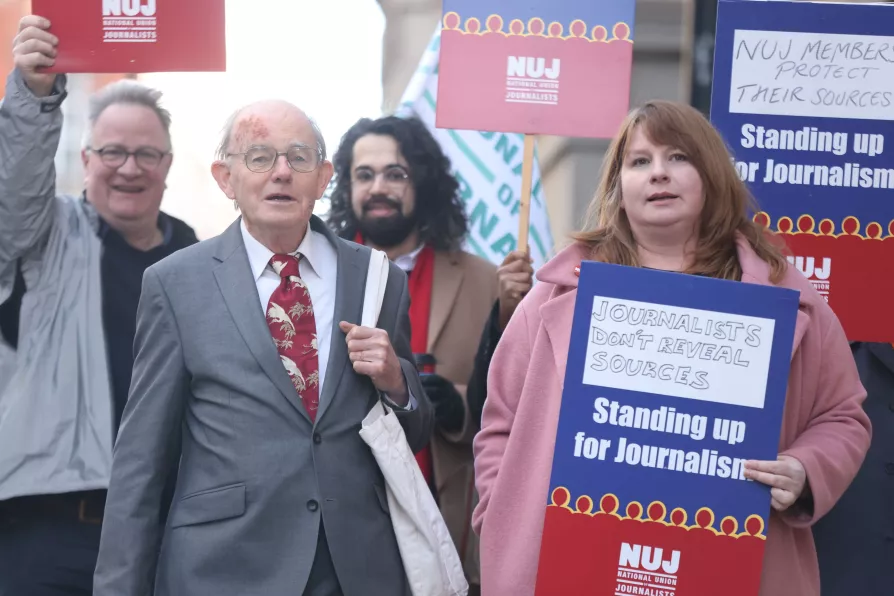As Colombia approaches presidential elections next year, the US decision to decertify the country in the war on drugs plays into the hands of its allies on the political right, writes NICK MacWILLIAM

 Michelle Stanistreet (right) with former MP Chris Mullin. The union helped his successful fight to prevent West Mercia Police forcing him to reveal his sources
Michelle Stanistreet (right) with former MP Chris Mullin. The union helped his successful fight to prevent West Mercia Police forcing him to reveal his sources
AT THE beginning of next month, the NUJ with the Society of Editors will launch The Journalists’ Safety Toolkit. It is an app that provides regularly updated information for reporters and photographers who feel themselves in danger.
Delighted as I am to provide such a resource for our members, the need for it is the cause of the deepest concern.
The working assumption of the labour movement for the past half-century has been that work is becoming progressively safer — and it is trade unions who have led on that work and deserve much of the credit for advances made.


















